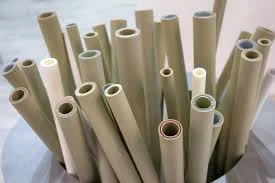
-
 Afrikaans
Afrikaans -
 Albanian
Albanian -
 Amharic
Amharic -
 Arabic
Arabic -
 Armenian
Armenian -
 Azerbaijani
Azerbaijani -
 Basque
Basque -
 Belarusian
Belarusian -
 Bengali
Bengali -
 Bosnian
Bosnian -
 Bulgarian
Bulgarian -
 Catalan
Catalan -
 Cebuano
Cebuano -
 China
China -
 China (Taiwan)
China (Taiwan) -
 Corsican
Corsican -
 Croatian
Croatian -
 Czech
Czech -
 Danish
Danish -
 Dutch
Dutch -
 English
English -
 Esperanto
Esperanto -
 Estonian
Estonian -
 Finnish
Finnish -
 French
French -
 Frisian
Frisian -
 Galician
Galician -
 Georgian
Georgian -
 German
German -
 Greek
Greek -
 Gujarati
Gujarati -
 Haitian Creole
Haitian Creole -
 hausa
hausa -
 hawaiian
hawaiian -
 Hebrew
Hebrew -
 Hindi
Hindi -
 Miao
Miao -
 Hungarian
Hungarian -
 Icelandic
Icelandic -
 igbo
igbo -
 Indonesian
Indonesian -
 irish
irish -
 Italian
Italian -
 Japanese
Japanese -
 Javanese
Javanese -
 Kannada
Kannada -
 kazakh
kazakh -
 Khmer
Khmer -
 Rwandese
Rwandese -
 Korean
Korean -
 Kurdish
Kurdish -
 Kyrgyz
Kyrgyz -
 Lao
Lao -
 Latin
Latin -
 Latvian
Latvian -
 Lithuanian
Lithuanian -
 Luxembourgish
Luxembourgish -
 Macedonian
Macedonian -
 Malgashi
Malgashi -
 Malay
Malay -
 Malayalam
Malayalam -
 Maltese
Maltese -
 Maori
Maori -
 Marathi
Marathi -
 Mongolian
Mongolian -
 Myanmar
Myanmar -
 Nepali
Nepali -
 Norwegian
Norwegian -
 Norwegian
Norwegian -
 Occitan
Occitan -
 Pashto
Pashto -
 Persian
Persian -
 Polish
Polish -
 Portuguese
Portuguese -
 Punjabi
Punjabi -
 Romanian
Romanian -
 Russian
Russian -
 Samoan
Samoan -
 Scottish Gaelic
Scottish Gaelic -
 Serbian
Serbian -
 Sesotho
Sesotho -
 Shona
Shona -
 Sindhi
Sindhi -
 Sinhala
Sinhala -
 Slovak
Slovak -
 Slovenian
Slovenian -
 Somali
Somali -
 Spanish
Spanish -
 Sundanese
Sundanese -
 Swahili
Swahili -
 Swedish
Swedish -
 Tagalog
Tagalog -
 Tajik
Tajik -
 Tamil
Tamil -
 Tatar
Tatar -
 Telugu
Telugu -
 Thai
Thai -
 Turkish
Turkish -
 Turkmen
Turkmen -
 Ukrainian
Ukrainian -
 Urdu
Urdu -
 Uighur
Uighur -
 Uzbek
Uzbek -
 Vietnamese
Vietnamese -
 Welsh
Welsh -
 Bantu
Bantu -
 Yiddish
Yiddish -
 Yoruba
Yoruba -
 Zulu
Zulu
Exploring the Benefits of Insulated FRP Covers for Enhanced Thermal Protection
The Advantages of Insulated FRP Covers
In today's industrial landscape, efficiency, safety, and sustainability are paramount, and one technology that addresses these needs is insulated fiber-reinforced polymer (FRP) covers. These covers are gaining traction in various sectors, including manufacturing, food processing, and chemical processing, due to their unique properties and benefits. This article explores the advantages of insulated FRP covers, highlighting why they are a preferred choice for many applications.
What are Insulated FRP Covers?
Insulated FRP covers are protective coverings made from fiberglass reinforced polymer, a composite material known for its strength, durability, and resistance to corrosion. The insulation aspect comes from adding materials that provide thermal resistance, making these covers highly effective in maintaining stable temperatures for various applications. They often encapsulate critical equipment, such as tanks, hoppers, piping, and other systems that require temperature control.
Enhanced Thermal Insulation
One of the primary advantages of insulated FRP covers is their excellent thermal insulation properties. By effectively minimizing heat loss or gain, these covers help maintain the desired temperature of stored materials or controlled processes. This feature is crucial in industries such as food and beverage processing, where maintaining specific temperatures is vital to preserving product quality.
Corrosion Resistance
Industrial environments can be harsh, with exposure to chemicals, moisture, and other corrosive agents. Insulated FRP covers are inherently resistant to corrosion, unlike traditional materials such as metal or wood, which can deteriorate over time. This resistance extends the life of the equipment they cover and reduces maintenance costs, providing significant long-term savings for businesses.
Lightweight and Easy to Install
insulated frp covers

Compared to metallic alternatives, insulated FRP covers are lightweight, which simplifies the installation process. Their lighter weight reduces the strain on structural supports, making it easier to integrate them into existing systems. Installation can often be completed more quickly than with heavier materials, minimizing downtime in production environments.
Customizability
Insulated FRP covers offer remarkable flexibility in terms of design and customization. They can be molded to fit a variety of shapes and sizes, ensuring a perfect fit for unique industrial equipment. This adaptability makes them suitable for a wide range of applications, from small tanks to large industrial vessels. Additionally, they can be manufactured with specific insulation thicknesses to meet the thermal requirements of the application.
Energy Efficiency
By reducing thermal exchange and energy consumption, insulated FRP covers contribute to overall energy efficiency. Maintaining temperature stability not only saves energy by reducing the need for heating or cooling but also minimizes waste and improves process efficiency. Companies that adopt insulated FRP technology often report a positive impact on their energy bills and a better return on investment.
Environmental Benefits
The use of insulated FRP covers can also have a positive effect on a company’s sustainability goals. By reducing energy consumption and extending the lifespan of equipment, these covers help lower overall carbon footprints. Furthermore, many manufacturers are committed to environmentally friendly practices, producing FRP materials that are recyclable or made from sustainable resources.
Conclusion
Insulated FRP covers present a compelling solution for industries requiring temperature control, corrosion resistance, and energy efficiency. Their lightweight nature, customizability, and environmental benefits make them an attractive choice for modern industrial applications. As industries strive for greater efficiency and sustainability, the adoption of insulated FRP covers is likely to continue to grow, proving their worth in enhancing operational effectiveness while safeguarding critical equipment. In a world where every advantage counts, insulated FRP covers stand out as a powerful tool for innovation in industrial insulation.









